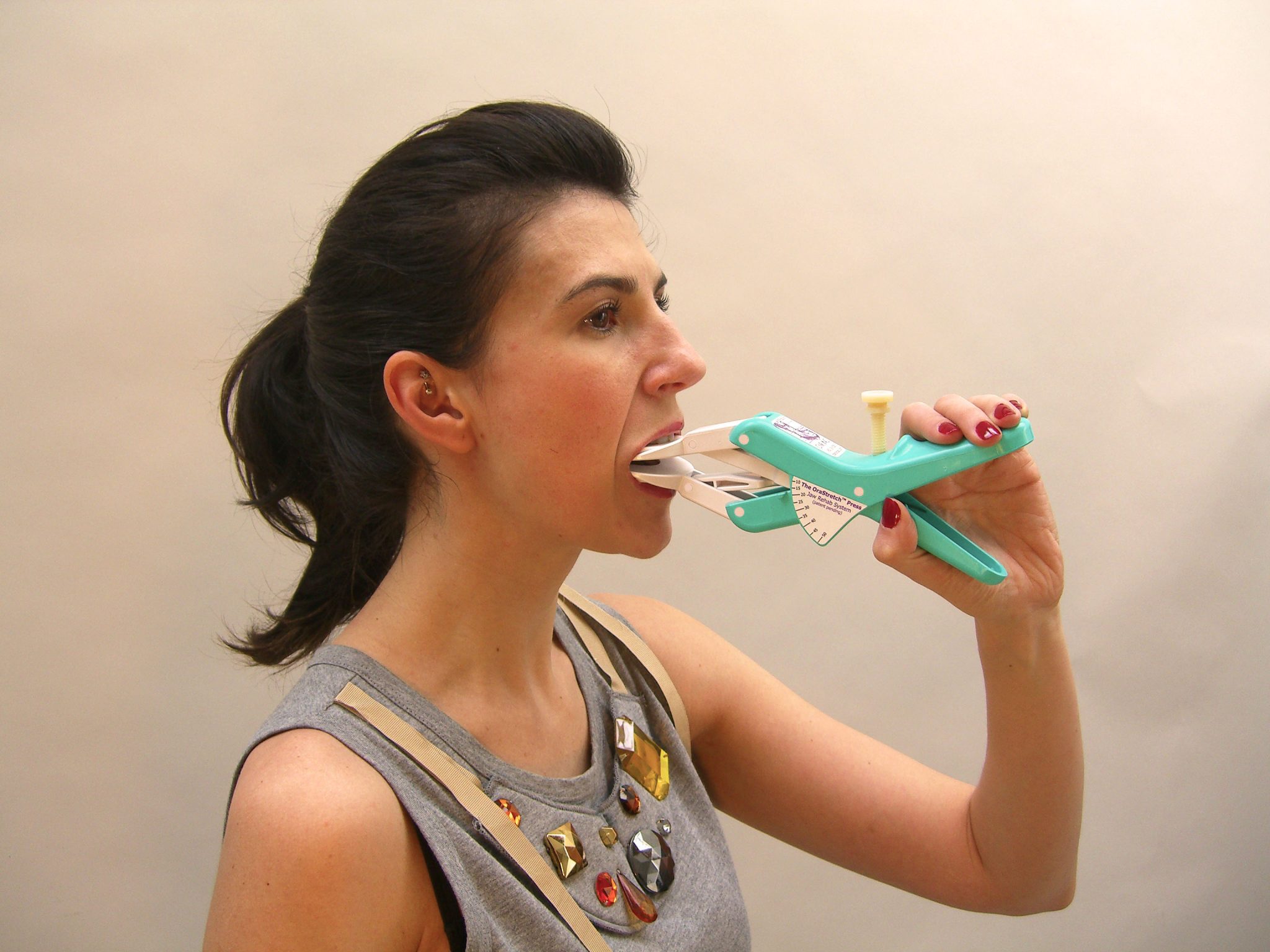Mind over matter
Featured Products Promotional FeaturesPosted by: Dental Design 26th September 2022

Stress is a prevalent force in the modern day, and every individual will experience it, in some capacity, during their daily life. While stress can be manageable, under certain conditions it can become detrimental to both physical and mental wellbeing. As a dental professional, it’s important to be aware of how stress can manifest in the body and what effects this can have on oral health.
The many faces of stress
Stress presents differently depending on the individual, and it’s generally accepted that there are three types of stress: acute, episodic acute and chronic.[i] Acute stress is considered short-term and can be the result of common, day-to-day stressors.[ii] It can be experienced multiple times throughout the day, but because the symptoms of acute stress do not last long, it’s not necessarily perceived as “unhealthy”. In fact, it can encourage individuals to adapt more effectively to the situation and can promote proactiveness.ii
However, frequent bouts of acute stress, otherwise known as episodic acute stress, can trigger more undesirable reactions in an individual. One might experience episodic acute stress if they, for example, take on too much responsibility at work or have a tendency to catastrophise certain situations. It’s generally considered that episodic acute stress is not continual, though, and there will be periods where an individual’s stress levels return to normal. Persistent, or chronic, stress results when it exceeds our ability to cope, leading to serious physical and mental consequences; this could potentially result in worrying behaviours such as self-harm or violence.
 Stress and oral health
Stress and oral health
Links between stress and health are well-established, with researchers noting that the relationship, while complex, is still evident.[iii] When stress becomes unmanageable, there is likely to be a “breakdown of bodily resources”,ii and stress has been linked to countless health issues, including constipation,[iv] sleep disorders,[v]and depression.[vi] Oral health is another area of wellbeing that can be affected by stress, in ways that may not be entirely obvious to the individual, meaning that certain symptoms could go unnoticed for long periods of time. Researchers[vii] have theorised that chronic stress can trigger oral diseases in two ways: firstly, those suffering from stress may use certain habits as coping mechanisms, such as taking drugs, smoking and a poor diet, which are all risk factors for poor dental health. Secondly, chronic stress can lead to the dysfunction of physiological systems, altering the way that the body maintains stability and therefore affecting the development and progression of disease.
A studyvi found an association between chronic stress and untreated tooth decay and periodontal disease.[viii]Stress has also been linked to bruxism,[ix] with research noting that while morphological and pathophysiological factors are often cited as causes of bruxism, psychosocial factors are becoming more apparent.[x] Studiesix have noted that those who experience awake bruxism are more likely to have jaw pain and/or limitations of jaw movement than those with sleep bruxism. As you well know, bruxism can lead to temporomandibular disorders (TMD), such as trismus.[xi] Trismus is often painful and can seriously impede a patient’s ability to speak and masticate. It can also impact their ability to maintain a thorough oral hygiene routine.
Treating trismus holistically
Trismus can vary in severity, meaning there will be different management strategies and treatment pathways. When treating patients with this condition, dental professionals should continue to prioritise patient education. This way, patients can conduct their own background reading and better understand the potential triggers of trismus. They’d also be able to recognise whether their own behaviours, such as clenching the jaw when stressed or grinding the teeth, play a role. With this awareness, patients can begin to unlearn these parafunctional behaviours and take steps to reduce the stress in their lives, if this is indeed what has triggered their trismus.
 In the meantime, treatment for trismus can include a referral to a specialist, which may be necessary for more complex manifestations of the condition. Other pathways include the use of medication, physical therapy, changes to diet and also the use of jaw-stretching devices. To improve how you manage TMJ disorders, the OraStretch Maximum Interincisal Opening (MIO)[xii] scales, from Total TMJ, make it quick and easy to measure the opening, movement and function of the mouth and jaw. This disposable solution is available with various rulers, in addition to a trismus guide and a log area for recording patient information. The OraStretch MIO is best used in conjunction with the OraStretch Press Rehab System, which aids patients in improving their jaw mobility and mouth opening by 1-2mm a week with regular use.[xiii]
In the meantime, treatment for trismus can include a referral to a specialist, which may be necessary for more complex manifestations of the condition. Other pathways include the use of medication, physical therapy, changes to diet and also the use of jaw-stretching devices. To improve how you manage TMJ disorders, the OraStretch Maximum Interincisal Opening (MIO)[xii] scales, from Total TMJ, make it quick and easy to measure the opening, movement and function of the mouth and jaw. This disposable solution is available with various rulers, in addition to a trismus guide and a log area for recording patient information. The OraStretch MIO is best used in conjunction with the OraStretch Press Rehab System, which aids patients in improving their jaw mobility and mouth opening by 1-2mm a week with regular use.[xiii]
What can you do?
Stress can easily become unmanageable, which adversely affects many aspects of a person’s wellbeing, and oral health is no exception. When a patient does present with a complication that could be caused by stress, you’re in an ideal position to give them the information, guidance and resources they need to take control of their stress and improve the quality of their life.

For more details about Total TMJ and the products available, please email phil@totaltmj.co.uk or karen@totaltmj.co.uk
[i] Healthline Editorial Team (2018). The Basics of Stress. [online] Healthline. Available at: https://www.healthline.com/health/stress[Accessed 8 Aug. 2022].
[ii] Verywell Mind. (n.d.). What You Should Know About Acute Stress. [online] Available at: https://www.verywellmind.com/all-about-acute-stress-3145064#citation-1 [Accessed 8 Aug. 2022].
[iii] Salleh, M.R. (2008). Life event, stress and illness. The Malaysian journal of medical sciences : MJMS, [online] 15(4), pp.9–18. Available at: https://www.ncbi.nlm.nih.gov/pmc/articles/PMC3341916/ [Accessed 8 Aug. 2022].
[iv] Chang, Y.-M., El-Zaatari, M. and Kao, J.Y. (2014). Does stress induce bowel dysfunction? Expert Review of Gastroenterology & Hepatology, [online] 8(6), pp.583–585. Available at: https://www.ncbi.nlm.nih.gov/pmc/articles/PMC4249634/ [Accessed 8 Aug. 2022].
[v] Han, K.S., Kim, L. and Shim, I. (2012). Stress and Sleep Disorder. Experimental Neurobiology, [online] 21(4), p.141. Available at: https://www.ncbi.nlm.nih.gov/pmc/articles/PMC3538178/ [Accessed 8 Aug. 2022].
[vi] Cristóbal-Narváez, P., Haro, J.M. and Koyanagi, A. (2020b). Perceived stress and depression in 45 low- and middle-income countries. Journal of Affective Disorders, [online] 274, pp.799–805. Available at: https://www.sciencedirect.com/science/article/pii/S0165032719324541 [Accessed 8 Aug. 2022].
[vii] Vasiliou, A., Shankardass, K., Nisenbaum, R. and Quiñonez, C. (2016). Current stress and poor oral health. BMC Oral Health, [online] 16(1). Available at: https://www.ncbi.nlm.nih.gov/pmc/articles/PMC5010733/#CR18 [Accessed 8 Aug. 2022].
[viii] Goyal, S., Gupta, G., Thomas, B., Bhat, K.M. and Bhat, G.S. (2013). Stress and periodontal disease: The link and logic!! Industrial Psychiatry Journal, [online] 22(1), pp.4–11. Available at: https://www.ncbi.nlm.nih.gov/pmc/articles/PMC3895311/ [Accessed 8 Aug. 2022].
[ix] Sutin, A.R., Terracciano, A., Ferrucci, L. and Costa, P.T. (2010). Teeth grinding: Is Emotional Stability related to bruxism? Journal of Research in Personality, [online] 44(3), pp.402–405. Available at: https://www.ncbi.nlm.nih.gov/pmc/articles/PMC2934876/[Accessed 8 Aug. 2022].
[x] Soto-Goñi, X.A., Alen, F., Buiza-González, L., Marcolino-Cruz, D., Sánchez-Sánchez, T., Ardizone-García, I., Aneiros-López, F. and Jiménez-Ortega, L. (2020). Adaptive Stress Coping in Awake Bruxism. Frontiers in Neurology, [online] 11. Available at: https://www.frontiersin.org/articles/10.3389/fneur.2020.564431/full [Accessed 8 Aug. 2022].
[xi] Garrett, A.R. and Hawley, J.S. (2018). SSRI-associated bruxism. Neurology: Clinical Practice, [online] 8(2), pp.135–141. Available at: https://www.ncbi.nlm.nih.gov/pmc/articles/PMC5914744/ [Accessed 8 Aug. 2022].
[xii] Craniorehab.com https://www.craniorehab.com/orastretch-jaw-mio-scales#:~:text=The%20OraStretch%C2%AE%20Maximum%20Interincisal,of%20the%20mouth%20and%20jaw.
[xiii] https://www.craniorehab.com/orastretch-information








